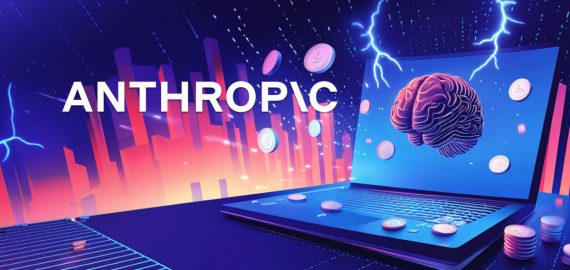Tokenization, ZK Proofs, and Restaking: Inside the Most Exciting Trends Unveiled at Hack Seasons Conference Seoul


In Brief
The Hack Seasons Conference Seoul attracted top Web3 experts to discuss trends, future directions, and investment strategies, including cryptocurrencies and AI integration.

With some of the finest minds in the field coming together to discuss the newest trends and future directions, the Hack Seasons Conference Seoul was an incredible event for all the lovers of Web3. A number of panels and keynote covered a wide variety of subjects during the conference, including how to invest in the next bull market and how to integrate cryptocurrencies with AI.
An Array of Insightful Panels and Keynotes from Our Top-tier Experts

The day began with a panel discussion focused on identifying hidden investment opportunities for the upcoming bull market. Moderated by Angela Tong, Head of Partnerships at DFG, the panel included Kevin Park from Lecca Ventures, Eric Nicomedez of Spartan Group, David Ching from Animoca Brands, and Junbo from Hashkey Capital.
The panelists discussed how to manage the market’s volatility and emphasized the value of innovative ideas and strategic alliances in fields like blockchain gaming and DeFi, which are important areas with room to expand. The conversation emphasized how important it is for investors to be knowledgeable and flexible, especially as the market gets ready for what many believe will be a period where things change.
Following this, the conversation shifted to the intersection of AI and cryptocurrency. A panel featuring David Muller from Theoriq, Mark Rydon of Aethir, Yan Bo Ng from Filecoin, and Gerry Wang, Founder of Arweave Oasis, explored whether cryptocurrencies could become the primary currency for AI applications.
The speakers talked about how blockchain might provide computing resources necessary for AI development as well as safe, decentralized storage options. Everyone agreed that although AI and cryptocurrency have enormous promise, there are still major technological and legal obstacles to be solved before they can be completely integrated.
Eric Fung, APAC Growth Lead at Qubic, then took the stage to deliver a keynote speech on “TrueAI,” a concept that merges AI with blockchain to create autonomous, self-improving systems. Fung emphasized how blockchain’s transparency and security features could enhance data integrity and trust in AI applications, positioning them as more reliable and efficient solutions across various industries. His talk provided an outlook on the future of AI, sparking curiosity and engagement among the attendees.
The conference continued with a panel discussion on the booming field of real-world asset (RWA) tokenization. Led by Erhan Korhaliller, Founder and CEO of EAK, and featuring speakers like Josh Wu from Matrixdock, Ivy Kang from Plume, and Rania Rahardja from Ondo Finance, the session highlighted the hottest use cases of tokenization.
The speakers discussed how converting actual assets into digital tokens may increase accessibility and efficiency, free up capital, and even transform traditional finance.
The next panel shifted focus to ZK proofs, a cryptographic innovation that promises to enhance privacy and scalability in blockchain applications. Moderated by AJ Park, Founder of Radius, the discussion included insights from experts like Brian Seong from Polygon, Kein Wang of Manta Network, and Cecilia Zheng of Taiko Gwyneth.
They looked at the most recent developments in ZK technology and how they may increase the security and usability of blockchain systems to encourage widespread use. The discussion emphasized how crucial it is to carry out further research and development in order to get over the present obstacles and realize ZK proofs’ full potential.
After a networking lunch, the conference resumed with a panel on market insights led by Arthur from Blocktempo, featuring Tiffany from Gate Ventures, Alessia Baumgartner of DWF, and Kevin Shao from Bitrise Capital.
The discussion focused on market forecasts and financial ideas, and the panelists offered their predictions for the following months. They emphasized the need for a comprehensive approach that considers both the risks and the potential presented by the crypto.
John Vibes, Content Lead at Somnia, then delivered a keynote on bridging the gap between Web2 and Web3. He discussed the challenges and opportunities involved in transitioning from the current internet infrastructure to a decentralized web, highlighting the importance of user experience and accessibility. Vibes argued that for Web3 to achieve mainstream adoption, it must address these issues and offer tangible benefits over existing systems.
The afternoon session featured a panel on building robust Web3 ecosystems, moderated by Vadim Krekotin of Cryptomeria Capital. Panelists Ian Yeh from TONX, Sarah Nabaa of Vechain, Scott Lee from NEAR, Anthurine Xiang of EthStorage, and Daria Varha from CrossFi shared their strategies for fostering innovation and growth in the decentralized space.
They talked on the significance of community involvement, infrastructure development, and teamwork in building sustainable ecosystems that can accommodate a variety of services and uses.
Jamie Jung, Head of Korea at QuarkChain, delivered a keynote on the evolution of blockchain technology and its potential to disrupt traditional industries. He highlighted QuarkChain’s latest innovations and discussed how these advancements could shape the future of the blockchain ecosystem, providing valuable insights for both developers and investors.
The day concluded with two final panels. The first, moderated by Alex Mukhin from Cryptomeria Capital, explored the potential of AI and DePIN to transform various sectors.
The panelists, including Antonio Liu of Polyhedra, Alireza Ghods from NATIX, Greg Osuri of Akash Network, and Artur Pszczółkowski from GamerHash AI, discussed how combining AI’s capabilities with blockchain’s decentralization could lead to groundbreaking applications in fields like healthcare, logistics, and gaming.
The final panel, moderated by Pao from Pendle, examined the concept of restaking and its potential impact on the Ethereum ecosystem and beyond. Panelists YQ from Altlayer, Yu Ning of Puffer, and Seongyun Ko from EtherFi discussed the technical and economic implications of restaking, highlighting how it could enhance security, decentralization, and scalability within blockchain networks.
Disclaimer
In line with the Trust Project guidelines, please note that the information provided on this page is not intended to be and should not be interpreted as legal, tax, investment, financial, or any other form of advice. It is important to only invest what you can afford to lose and to seek independent financial advice if you have any doubts. For further information, we suggest referring to the terms and conditions as well as the help and support pages provided by the issuer or advertiser. MetaversePost is committed to accurate, unbiased reporting, but market conditions are subject to change without notice.
About The Author
Victoria is a writer on a variety of technology topics including Web3.0, AI and cryptocurrencies. Her extensive experience allows her to write insightful articles for the wider audience.
More articles

Victoria is a writer on a variety of technology topics including Web3.0, AI and cryptocurrencies. Her extensive experience allows her to write insightful articles for the wider audience.


















































